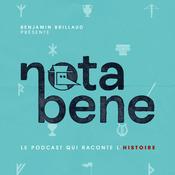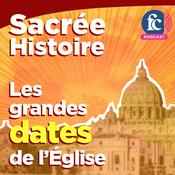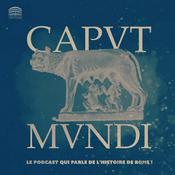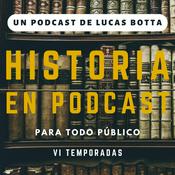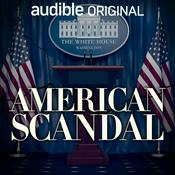606 épisodes
- New York Times columnist Jamelle Bouie joins award-winning journalist Juan Williams for a conversation on Williams’ latest book, New Prize for These Eyes: The Rise of America’s Second Civil Rights Movement, exploring the emergence of a new civil rights era—from the 2008 election of President Obama to the January 6, 2021 attack on the U.S. Capitol. Thomas Donnelly, chief scholar at the National Constitution Center, moderates.
This conversation was originally streamed live as part of the NCC’s America’s Town Hall series on February 26, 2025.
Resources
Juan Williams, New Prize for These Eyes: The Rise of America’s Second Civil Rights Movement (2025)
Jamelle Bouie, “Discussing Trayvon Martin, Obama Embraces his Blackness,” The American Prospect (July 19, 2013)
Jamelle Bouie, opinion columnist, The New York Times
Civil Rights Movement
Reconstruction
Thomas Ricks, Waging a Good War: A Military History of the Civil Rights Movement, 1954-1968 (2022)
Stay Connected and Learn More
Questions or comments about the show? Email us at [email protected]
Continue the conversation by following us on social media @ConstitutionCtr
Explore the America at 250 Civic Toolkit
Sign up to receive Constitution Weekly, our email roundup of constitutional news and debate
Subscribe, rate, and review wherever you listen
Join us for an upcoming live program or watch recordings on YouTube
Support our important work
Donate - Gary Berton, the president of The Thomas Paine Historical Association, joins Scott Cleary, co-editor of New Directions in Thomas Paine Studies and author of The Field of Imagination: Thomas Paine and Eighteenth-Century Poetry, to discuss the revolutionary life, ideas, and legacy of Thomas Paine in celebration of the 250th anniversary of his famous pamphlet, Common Sense. Julie Silverbrook, vice president of civic education of the National Constitution Center, moderates.
This conversation was originally streamed live as part of the NCC’s America’s Town Hall series on February 9, 2026. It is generously sponsored by Citizen Travelers, the nonpartisan civic engagement initiative of Travelers.
Resources
Scott Cleary, New Directions in Thomas Paine Studies
Scott Cleary, The Field of Imagination: Thomas Paine and Eighteenth-Century Poetry
Thomas Paine, Common Sense
Richard Rosenfeld, American Aurora: A Democratic-Republican Returns
Stay Connected and Learn More
Questions or comments about the show? Email us at [email protected]
Continue the conversation by following us on social media @ConstitutionCtr
Explore the America at 250 Civic Toolkit
Sign up to receive Constitution Weekly, our email roundup of constitutional news and debate
Subscribe, rate, and review wherever you listen
Join us for an upcoming live program or watch recordings on YouTube
Support our important work
Donate - In celebration of Black History Month, scholars Lucas Morel and Melvin Rogers join to discuss how African American leaders and citizens, such as Prince Hall, Frederick Douglass, Ida B. Wells, and Rev. Martin Luther King, Jr. have invoked the ideas and principles of the Declaration of Independence throughout American history to push for a more free and equal America. Thomas Donnelly, chief scholar of the National Constitution Center, moderates.
This conversation was originally streamed live as part of the NCC’s America’s Town Hall series on February 2, 2026.
Resources
National Constitution Center, "The Declaration Across History" Primary Sources
Lucas Morel, Lincoln and the American Founding
Melvin Rogers, The Darkened Light of Faith: Race, Democracy, and Freedom in African American Political Thought
Stay Connected and Learn More
Questions or comments about the show? Email us at [email protected]
Continue the conversation by following us on social media @ConstitutionCtr
Explore the America at 250 Civic Toolkit
Explore Pursuit: The Founders’ Guide to Happiness
Sign up to receive Constitution Weekly, our email roundup of constitutional news and debate
Follow, rate, and review wherever you listen
Join us for an upcoming live program or watch recordings on YouTube
Support our important work
Donate - In this Best of 2025-episode, Best-selling author Michael Lewis discusses his new book, Who Is Government?: The Untold Story of Public Service. As Americans’ distrust in the government continues to grow, Lewis’ book examines how the government works, who works for it, and why their contributions continue to matter. Jeffrey Rosen, CEO Emeritus of the National Constitution Center, moderates.
This conversation was originally streamed live as part of the NCC’s America’s Town Hall series on March 26, 2025.
Resources
Michael Lewis, ed., Who Is Government? The Untold Story of Public Service (2025)
Michael Lewis, “The free‑living bureaucrat,” The Washington Post (March 2025)
Michael Lewis, “Directions to a journalistic gold mine,” The Washington Post (Nov. 2024)
Michael Lewis, The Premonition: A Pandemic Story (2022)
Michael Lewis, The Fifth Risk (2018)
CURE ID
Stay Connected and Learn More
Questions or comments about the show? Email us at [email protected]
Continue the conversation by following us on social media @ConstitutionCtr
Explore the America at 250 Civic Toolkit
Explore Pursuit: The Founders’ Guide to Happiness
Sign up to receive Constitution Weekly, our email roundup of constitutional news and debate
Follow, rate, and review wherever you listen
Join us for an upcoming live program or watch recordings on YouTube
Support our important work
Donate - This week, we explore the life of an influential and yet, often overlooked founder, James Wilson. Whose ideas and influence continue to shape current debates about popular sovereignty, constitutional structure, and democratic self-government.
Legal scholar William Ewald of the University of Pennsylvania and Jesse Wegman of the Brennan Center for Justice join to discuss Wegman’s new book, The Lost Founder: James Wilson and the Forgotten Fight for a People’s Constitution, which explores the life and legacy of this founder and Supreme Court justice. Julie Silverbrook, vice president of civic education of the National Constitution Center, moderates.
Resources
Jesse Wegman, The Lost Founder: James Wilson and the Forgotten Fight for a People's Constitution
Jesse Wegman, Let the People Pick the President: The Case for Abolishing the Electoral College
Stay Connected and Learn More
Questions or comments about the show? Email us at [email protected]
Continue the conversation by following us on social media @ConstitutionCtr
Explore the America at 250 Civic Toolkit
Explore Pursuit: The Founders’ Guide to Happiness
Sign up to receive Constitution Weekly, our email roundup of constitutional news and debate
Follow, rate, and review wherever you listen
Join us for an upcoming live program or watch recordings on YouTube
Support our important work:
Donate
Plus de podcasts Histoire
Podcasts tendance de Histoire
À propos de We the People
A weekly show of constitutional debate hosted by National Constitution Center President and CEO Jeffrey Rosen where listeners can hear the best arguments on all sides of the constitutional issues at the center of American life.
Site web du podcastÉcoutez We the People, Nota Bene ou d'autres podcasts du monde entier - avec l'app de radio.fr

Obtenez l’app radio.fr gratuite
- Ajout de radios et podcasts en favoris
- Diffusion via Wi-Fi ou Bluetooth
- Carplay & Android Auto compatibles
- Et encore plus de fonctionnalités
Obtenez l’app radio.fr gratuite
- Ajout de radios et podcasts en favoris
- Diffusion via Wi-Fi ou Bluetooth
- Carplay & Android Auto compatibles
- Et encore plus de fonctionnalités


We the People
Scannez le code,
Téléchargez l’app,
Écoutez.
Téléchargez l’app,
Écoutez.


